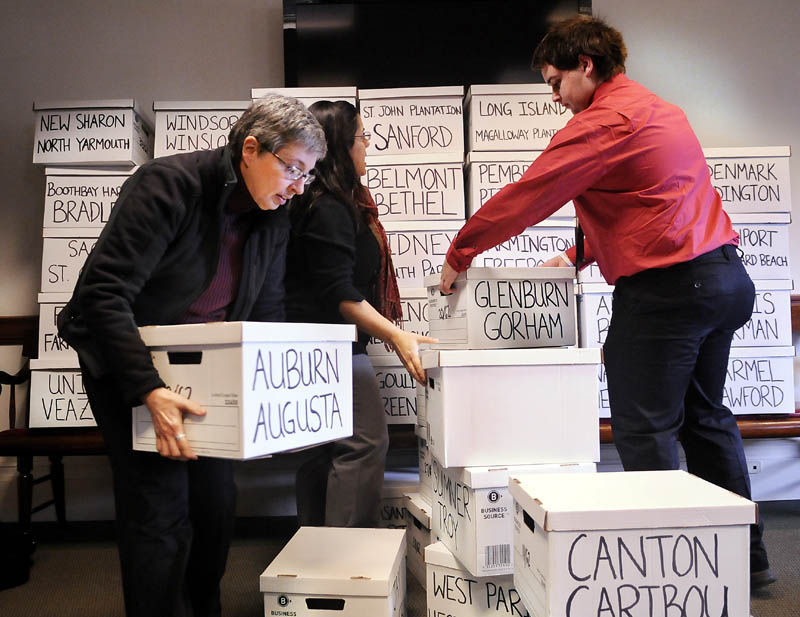Words matter, and Secretary of State Charlie Summers deserves credit for finding the right combination of words for the same-sex marriage question that will appear on this November’s ballot.
When they get to vote, Mainers will see this question: “Do you want to allow the State of Maine to issue marriage licenses to same-sex couples?” It is a simple and direct question, but its path to the ballot was neither simple nor direct.
The question that same-sex marriage supporters had proposed included specific language that expressly said that no clergy member or religious official would be forced to perform a same-sex couple’s marriage. This was important to them because they know that opponents use Bible verses and religious arguments to fight changing the marriage law.
Summers found the language to be overly complicated and confusing and proposed a much simpler question: “Do you want to allow same-sex couples to marry?”
But what that wording achieved in simplicity, it lost in clarity. To many, marriage is primarily a religious sacrament, and using the proposed language without expressly exempting religious officials could create a false impression that the question would affect religious marriage.
As we have said before, it would not. As the law now stands, churches have the right to set the rules over who can and who cannot get married, and no change in the statute could change that.
This ballot question addresses only legal marriage, which is something that is done completely independent of religious practice. Same-sex couples can already marry in some churches, but they are not married in the eyes of the law. And even under the current law, there are couples who are legally married who would not be eligible for a blessing by some religious institutions.
The debate this fall should be whether it is fair that some couples and their children should be excluded from the protections and responsibilities that come with entering into a civil marriage contract, not some far-fetched claim that churches would be forced to perform ceremonies that violate their teachings. This question addresses what happens at the town clerk’s window, not at the altar.
Summers wisely rephrased the question by making it clear that what is at stake is a marriage license, not a wedding, and that this was a question concerning rights under civil law, not religious rites. Both sides should make an effort to make the rest of the campaign as direct and honest.
Copy the Story Link
Send questions/comments to the editors.



Success. Please wait for the page to reload. If the page does not reload within 5 seconds, please refresh the page.
Enter your email and password to access comments.
Hi, to comment on stories you must . This profile is in addition to your subscription and website login.
Already have a commenting profile? .
Invalid username/password.
Please check your email to confirm and complete your registration.
Only subscribers are eligible to post comments. Please subscribe or login first for digital access. Here’s why.
Use the form below to reset your password. When you've submitted your account email, we will send an email with a reset code.